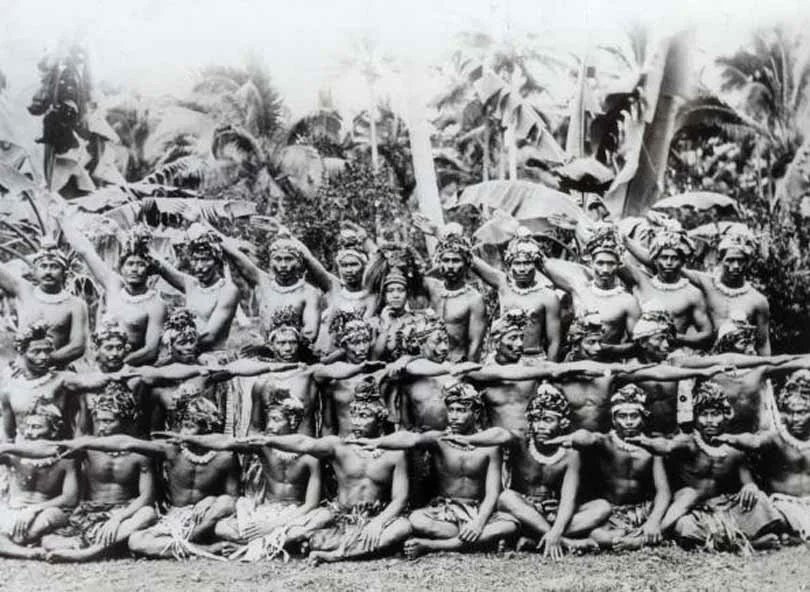On Jan. 17, 1893, 130 years ago, the Native government of the Kingdom of Hawaii was overthrown by European and American settler colonialists. How did it happen, and how did this lead to the US annexation of Hawaii? A thread. 🧵 1/ 

The coup happened close to the anniversary of the arrival of the first Europeans in Hawaii. The British Captain James Cook reached the islands on Jan. 20, 1778, beginning their long-term colonization. Cook himself was killed after attempting to kidnap an Indigenous leader. 2/ 

Still, his voyage attracted many from the U.S. and Europe to come to Hawaii over the next century, especially to spread Christianity to Native Hawaiians or enter the lucrative sugar business. By the late 1880s, White immigrants and their descendants had amassed a lot of power. 3/ 

In 1887, rich plantation owners compelled Hawaiian King David Kalakaua at gunpoint to sign a new racist constitution, which weakened the monarchy and "effectively denied suffrage to anyone who wasn’t a white, English-speaking property owner." 4/
history.com/news/hawaii-50…
history.com/news/hawaii-50…
Native Hawaiians despised this aptly nicknamed the “Bayonet Constitution.” Kalakaua’s successor, Queen Liliʻuokalani, planned to rewrite the constitution, both restoring the rights of the monarch and expanding the rights of the Native Hawaiians. She never got the chance. 5/ 

Lorrin Thurston, Hawaii-born and descended from American missionaries, led a so-called Committee of Safety in launching a full-scale revolt against Queen Liliʻuokalani in January 1893. Thurston was part of the brains behind the Bayonet Constitution. 6/
archive.nytimes.com/learning.blogs…
archive.nytimes.com/learning.blogs…
The committee had assistance from White allies like Sanford Dole, a lawyer and cousin of the fruit company founder. Further, over 100 U.S. Marines and seamen from the USS Boston supported the coup. The Queen surrendered. 7/ 

The committee hoped to secure White hegemony in Hawaii by having it annexed by the U.S. However, President Grover Cleveland and Congress balked at the idea. 8/ 

Cleveland condemned the coup, called for power to be returned to the Queen, and made it clear Hawaii would not be annexed. Refusing to cede power, the rebels instead formed the independent Republic of Hawaii, with Dole as its president. 9/
nea.org/advocating-for…
nea.org/advocating-for…
The U.S. refused to annex Hawaii at the time partly because, in addition to Native people, Hawaii was home to a sizable number of immigrants from East Asia. Annexing Hawaii would potentially open citizenship to them, something complicated by the Chinese Exclusion Act of 1882. 10/ 

By 1898, Cleveland was no longer president, and U.S. leaders saw Japan expanding its influence further east into the Pacific as a threat to the nation's economic interests. Seeking to ensure a foothold in Hawaii, the U.S. agreed to annex that year. 11/ 

Hawaii and the mainland share a heritage of settler colonialism. Lands acquired holding Indigenous peoples at gunpoint, or worse. Coups and wars and massacres and Bayonet constitutions that are rarely taught to us, that we hardly know. And it isn’t hard to figure out why. 12/12 

• • •
Missing some Tweet in this thread? You can try to
force a refresh

















